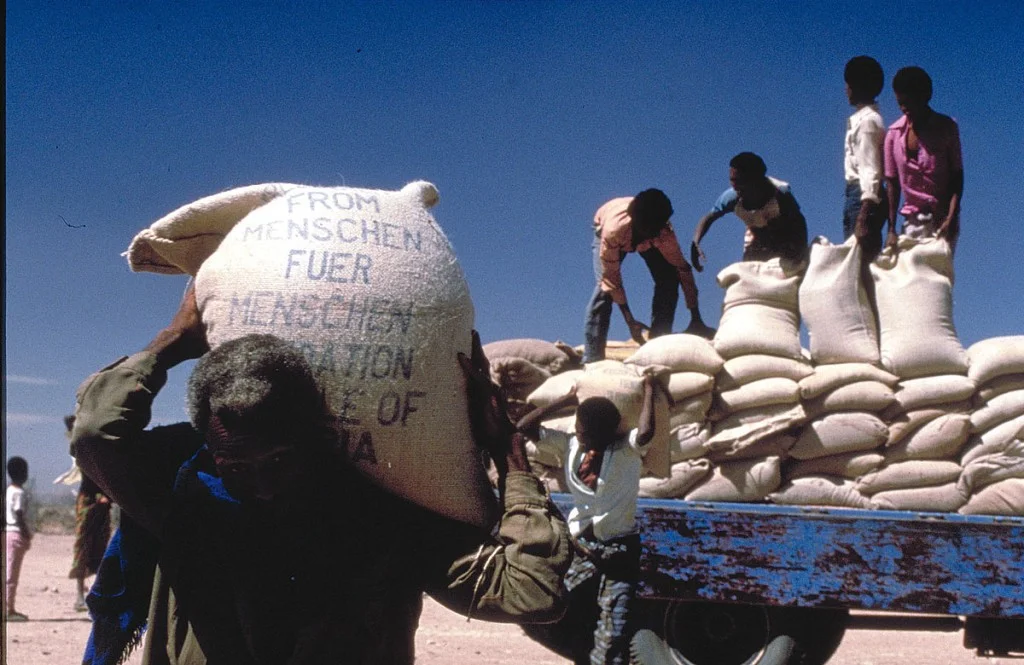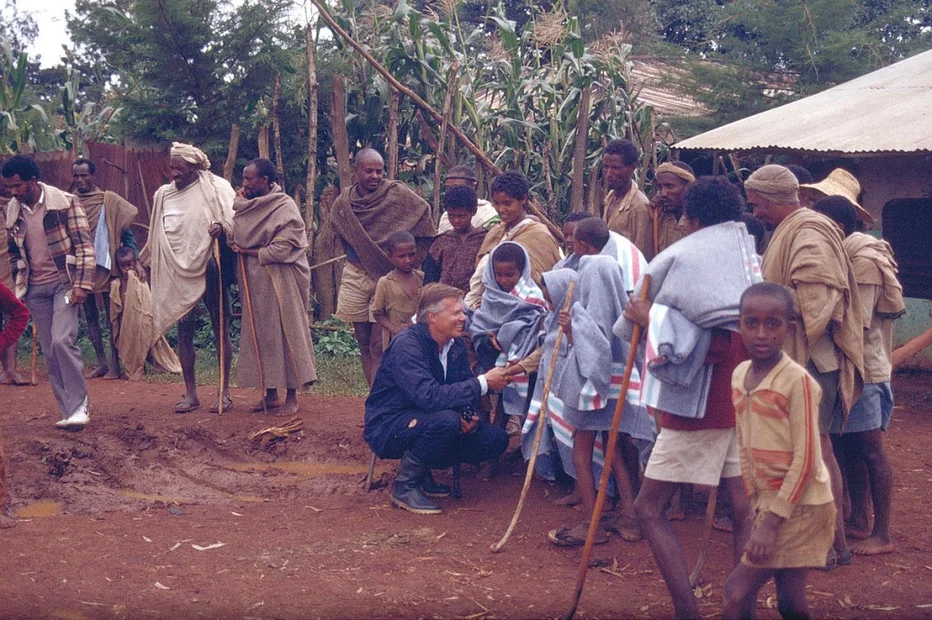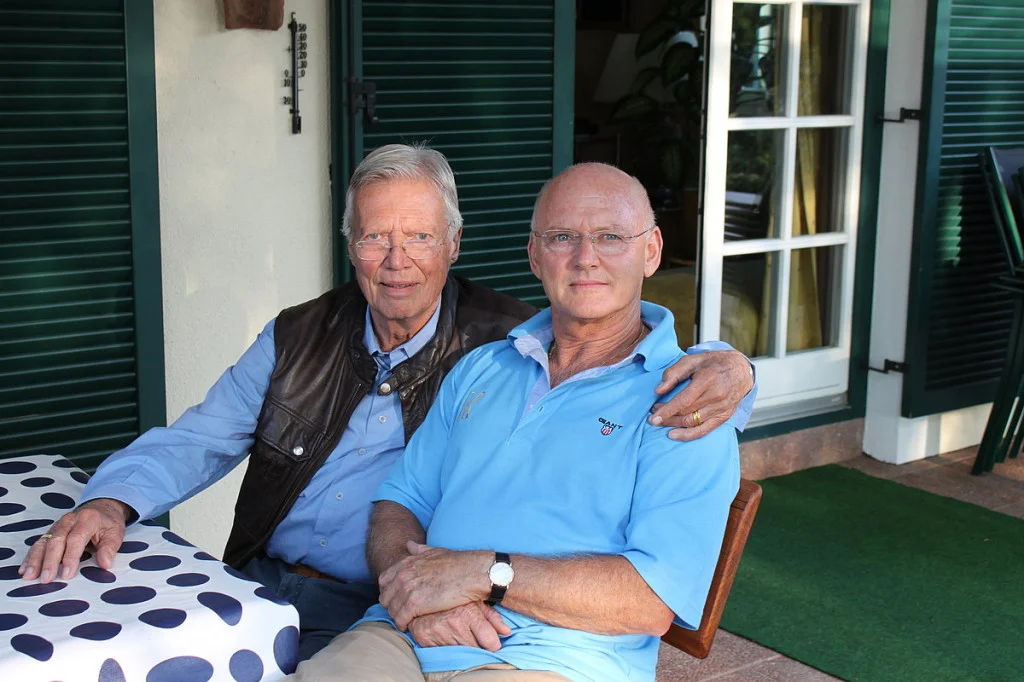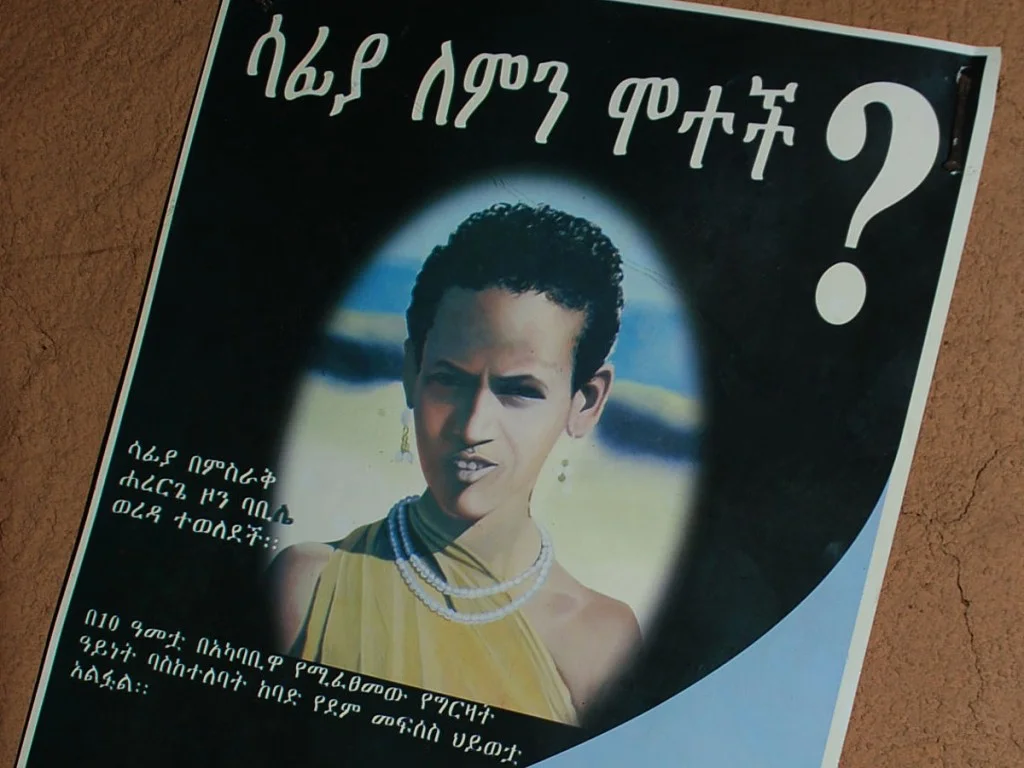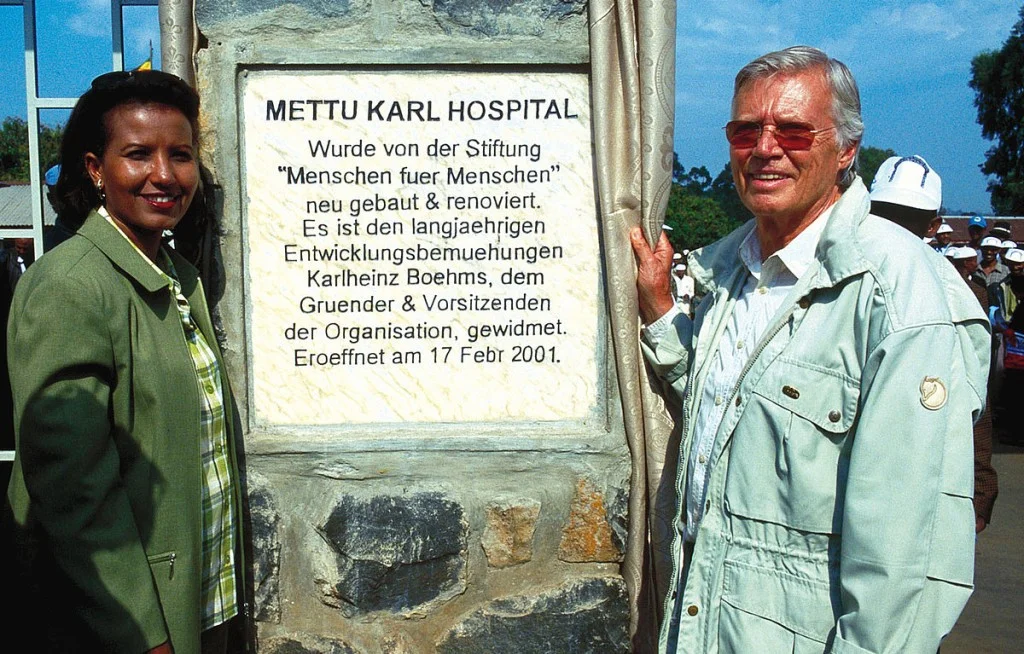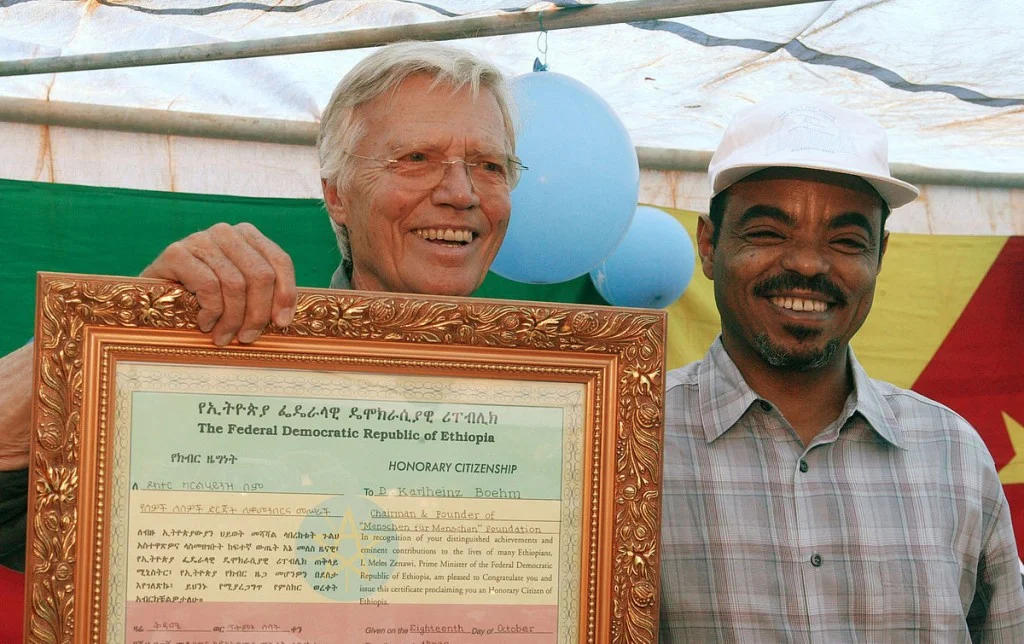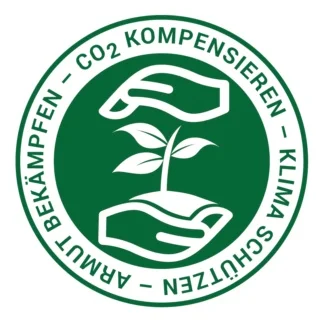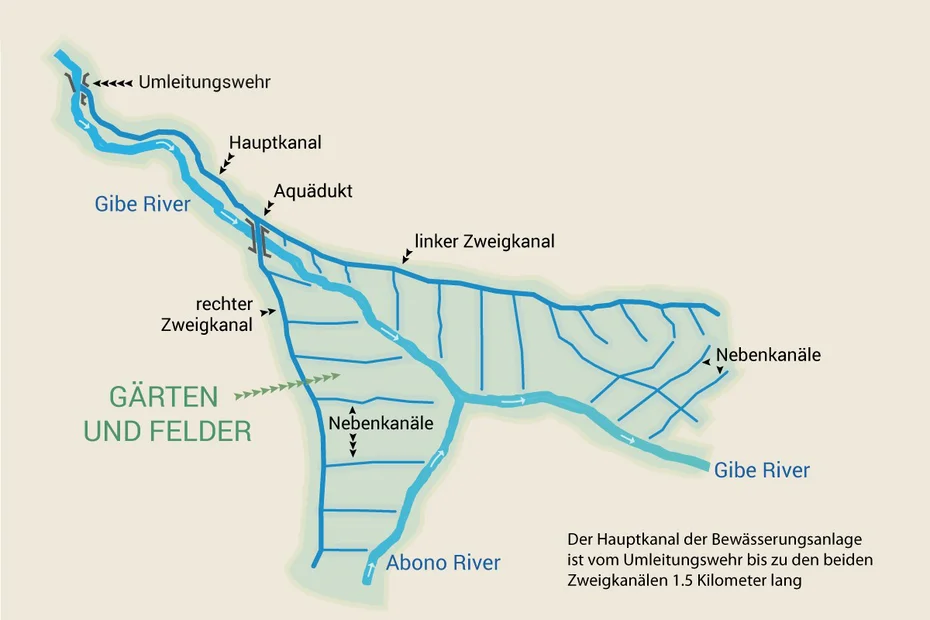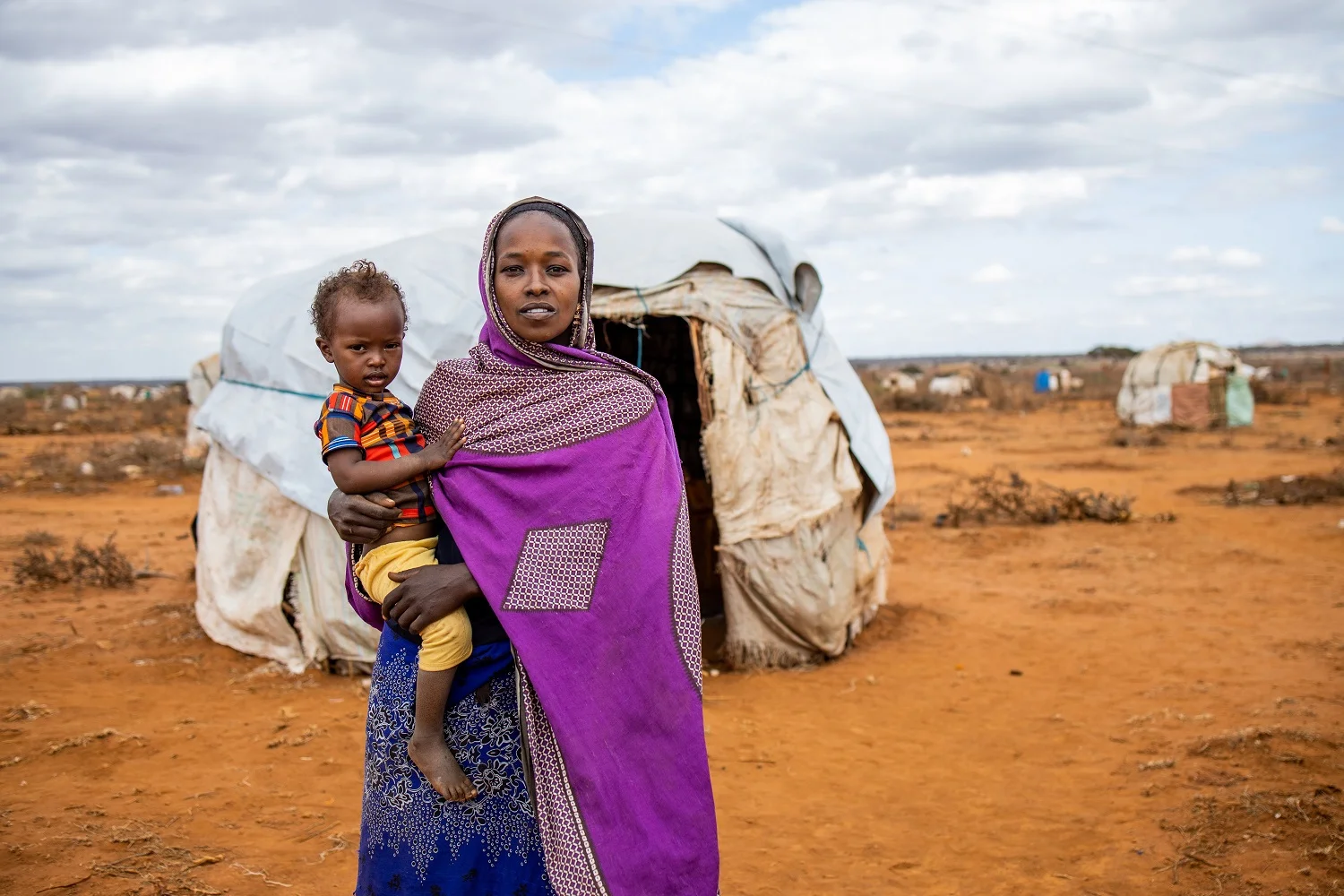Development - step by step
From Karlheinz Böhm’s legendary bet in “Wetten, dass…?” to today's project work in cities and villages in Ethiopia: Here are the milestones of development people for people .
The Bet / The Foundation Stone
On May 16, 1981, Karlheinz Böhm bet on the ZDF program “Wetten, dass..?” that not every third viewer would donate one Swiss franc, one mark or seven Austrian shillings for people in the Sahel zone. His goal was to lose the bet so that the money would go to the suffering people of the Sahel.
First trip to Ethiopia
Karlheinz Böhm won the bet, but the impressive sum of 1.2 million francs was still raised. In October 1981 he flew to Ethiopia for the first time and visited a refugee camp in Babile.
Founding of the Foundation Menschen für Menschen
On November 13, 1981, Karlheinz Böhm founded the aid organization Menschen für Menschen in Germany.
The organization begins with the settlement of 2100 refugees from southeast Ethiopia in the Erer Valley.
During one of Ethiopia's largest drought disasters, the Foundation Menschen für Menschen saved hundreds of thousands from starvation.
Menschen für Menschen supports 85,000 people who were resettled by the Ethiopian government from the drought areas of the north to Illubabor (western Ethiopia).
1988 - Integrated Rural Development Project
The aid project in Illubabor is being expanded into an integrated rural development project.
1989 - Founding of the Foundation Menschen für Menschen Switzerland
Karlheinz Böhm founded the Foundation Menschen für Menschen Switzerland together with Rolf Knie, the current Honorary President of the Swiss Foundation, and the current Vice President Carl Meyer. The first office of Menschen für Menschen Switzerland was based in Rolf Knie's house. The two have had a close friendship since Rolf Knie's childhood.
1996 - Opening of the first children's and youth home
The Abdii Borii children's and youth home in Mettu in the Illubabor province offers children and young people without parents a home with training.
1999 - Projects against female circumcision
Karlheinz Böhm starts the “Safia” campaign with 2000 people from 15 districts in the Erer Valley to combat the circumcision of girls.
2001 - Opening of Mettu Karl Hospital
The Mettu Hospital was renamed Mettu-Karl-Hospital in 1998 by the authorities in Illubabor in honor of and as a thank you to Karlheinz Böhm. It was officially reopened in 2001.
2003 - Honorary citizenship
The Alem Katema Enat Hospital is the third large hospital built by the foundation to open. At the inauguration ceremony, Ethiopian head of state Meles Zenauwi awarded Karlheinz Böhm honorary Ethiopian citizenship.
2011 - Drought disaster in southern Ethiopia
In 2011 there was far too little rain, so many farmers lost their harvests due to the drought. People could no longer feed themselves. That's why Menschen für Menschen organized the care of around 47,000 needy people in southern Ethiopia.
Death of the foundation founder
On May 29, 2014, Karlheinz Böhm, our founder and honorary president, died in his immediate family at the age of 86. He will live on in our hearts forever. We thank him for his life's work and continue it in his spirit!
Menschen für Menschen Switzerland is breaking new ground
The independent Menschen für Menschen Switzerland foundation is breaking new ground and ending its collaboration with the previous cooperation partner Menschen für Menschen Germany in order to set up independent projects in urban slums
Projects with a new approach
In 2015, Menschen für Menschen Switzerland will start the first projects using the new project approach. The life chances of the poorest families in both rural and urban areas are improved.
Rolf Knie becomes honorary president
In August 2015, Rolf Knie, Karlheinz Böhm's long-time and close friend, was appointed Honorary President of the Foundation Menschen für Menschen Switzerland.
2016 - Drought disaster in Mille
At the beginning of 2016, Ethiopia was suffering from the worst drought in 30 years. To avoid famine, around ten million people urgently need food. Menschen für Menschen Switzerland is providing emergency aid in the particularly affected Afar area. 6000 children receive life-saving emergency aid.
Irrigation infrastructure in Afar
We are completing our irrigation infrastructure in Subuli in the Afar region. 1800 people are now farming in the savannah, securing their food and earning income.
Health for Shewarobit
We completed our hygiene project in the city of Shewarobit. Now practically all households have basic sanitation. Public defecation has been virtually eliminated. Diarrheal cases fell by fifty percent. In 2018, no more small children died from hygiene-related illnesses.
Launch of climate project with CO2 compensation
For the first time, we are offering the option of climate compensation: individuals, communities and companies can offset their unavoidable greenhouse gas emissions. With their compensation we plant trees in Fogera. In the district, deforestation is causing problems for the landscape and people. Reforestation stabilizes natural resources. At the same time, the trees bind thousands and thousands of tons of CO2 - and thus help the climate.
Emergency aid due to Covid-19 crisis
The Covid-19 crisis is delaying progress on many projects. The poorest families in particular are hit the hardest: many day laborers are no longer getting jobs. We provide emergency aid in urban poor areas of Addis Ababa and Debre Berhan with food parcels and amounts of money so that families can pay the rent of their accommodation.
2021 - Emergency aid for war-damaged families in Tigray
Due to the war in Tigray, families around the city of Wukro are facing hunger. Children in particular need help so that they do not suffer developmental damage. That's why we bring trucks full of food to families in need.
Irrigation infrastructure inaugurated
In Seka in southwestern Ethiopia, not far from the town of Jimma , Menschen für Menschen is inaugurating an irrigation infrastructure. By damming a river and canals, an area the size of 280 football fields can be irrigated. 600 families receive food security.
Drought emergency aid for shepherd families
The worst drought in 40 years is affecting large areas of the Horn of Africa. In many places it hasn't rained for two years. The shepherds' livestock starve and die of thirst. From August onwards, Menschen für Menschen will provide emergency aid to 4,539 people.






